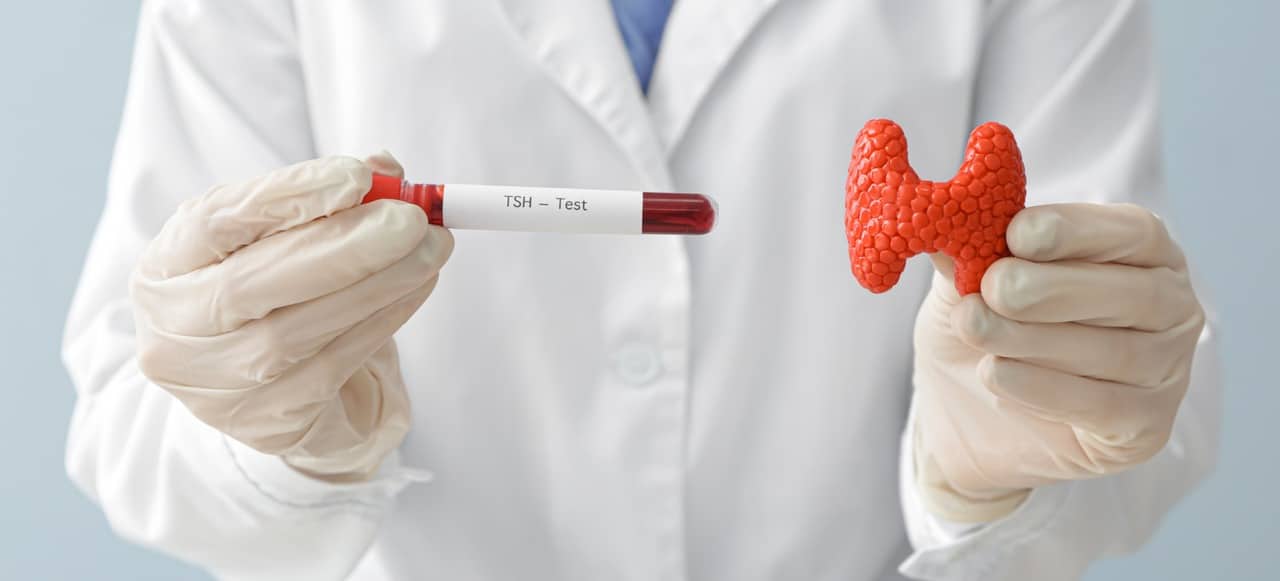Navigating Your Thyroid Health
20 May 2024
There is a need for regular check-ups, awareness of symptoms, and early intervention that can significantly contribute to optimal thyroid health.

Thyroid health is a fundamental yet often overlooked aspect of our overall wellbeing. Nestled in the neck like a butterfly, the thyroid gland plays a pivotal role in regulating body metabolism.
The thyroid produces hormones crucial for energy regulation, making it a key player in our overall wellbeing.
Dr Wong Mei Wan, consultant breast and endocrine surgeon at Sunway Medical Centre shares some valuable insights into the functions of the thyroid, differences between hyperthyroidism and hypothyroidism, common myths, and misconceptions.
Identifying The Difference Between Hyperthyroidism And Hypothyroidism
Hyperthyroidism is the second most common endocrine disease after diabetes in Malaysia. Dr. Wong delves into various thyroid diseases categorised based on functionality.
These include hyperthyroidism, hypothyroidism, and cases where the thyroid gland is functioning normally but has nodules. Understanding these distinctions is crucial for comprehending the wide range of thyroid-related conditions that individuals may face.
Hyperthyroidism is characterised by excess hormone production. This condition manifests through symptoms such as restlessness, weight loss, heat intolerance, and excessive sweating.
 On the other hand, hypothyroidism, resulting from insufficient hormone production, presents symptoms such as fatigue, weight gain, and persistent lethargy.
On the other hand, hypothyroidism, resulting from insufficient hormone production, presents symptoms such as fatigue, weight gain, and persistent lethargy.
The causes of hyperthyroidism vary, ranging from autoimmune diseases like Graves disease to thyroiditis triggered by excessive iodine intake. Conversely, hypothyroidism can occur as a result of surgery due to the removal of the thyroid gland. Genetics may contribute to some thyroid issues.
The most worrying about hyperthyroidism symptoms can mimic common issues, so many hyperthyroidism cases are often left untreated. According to recent research, about 50 per cent of people with thyroid disease often go undiagnosed.
“Because the symptoms of both hyperthyroidism and hypothyroidism can be difficult to distinguish if it’s a normal occurrence or its due to imbalances, it is imperative that people seek help If they encounter these symptoms. With hyperthyroidism, this is even more important as it can lead to serious health problems, even death,” said Dr Wong.
Graves’ Disease
Graves’ disease, an autoimmune condition causing hyperthyroidism, goiter, and potentially other organ-affecting symptoms.
“Treatment for Graves’ disease may typically involve medication, radioactive iodine, or surgery, depending on hormone control. Understanding the nuances of complications like Graves’ disease is crucial for individuals navigating thyroid health,” said Dr Wong.
Symptoms And Misconceptions
To diagnose thyroid diseases, healthcare professionals commonly conduct a thyroid function test — a blood test that assesses hormone levels.
“Thyroid symptoms, whether hyper or hypo, are often nonspecific, leading to misinterpretations. If you have symptoms that are persistent over one month period, see a healthcare professional and get a thyroid function test which is a blood test,” according to Dr Wong.
Ultrasound may be recommended if nodules or abnormalities are suspected in your thyroid function.
“Like a lump in the breast, if you suspect that there is an abnormality in your neck due to your thyroid, early detection with regular check-ups and screening is encouraged,” said Dr Wong.
Some misconceptions about thyroid nodules is that if you have a nodule, it requires medication or it is cancer. Dr Wong shares that as long as the patients’ thyroid levels are normal, medication is not required even if they have a nodule.
Research also suggests a higher prevalence of thyroid diseases among women. While Dr Wong acknowledges this trend, but highlights the lack of conclusive evidence explaining the reason for the gender disparity.
Treating Thyroid Disease
Treatment varies based on the type and severity of thyroid disorders. Medications are often prescribed to regulate hormone levels.
Dr Wong emphasises the importance of monitoring through regular blood tests, especially for those undergoing treatment, to ensure stability in thyroid function.
Thyroid awareness is a critical component of maintaining overall health.
With the complexities of thyroid disorders, it stands to reason that there is a need for regular check-ups, awareness of symptoms, and early intervention that can significantly contribute to optimal thyroid health, ensuring a balanced and vibrant wellbeing among Malaysians.
Source: Code Blue





